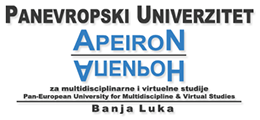 Management, Communication in the Health Institution
Management, Communication in the Health Institution
Management, Communication in the Health Institution
Valentina Vrućan
Pan European University Apeiron, Banja Luka, Bosnia and Herzegovina, valentina_vrucan1@hotmail.com
ABSTRACT: If we look around, we can easily notice that the world would not function without communication.
How could we express our thoughts and what we want unless we say it, show it and touch it? Therefore, the business world could not function without interpersonal communication either, especially in the health institutions.
The beginning of the research was based on the hypothesis that communication had to be open for the system to function, and employees satisfi ed with the working atmosphere and the relationship with the facility management. It was assumed that verbal communication was the most common form of communication, which often resulted in confl icts among health professionals. The research showed that the respondents were aware of the importance of creating eff ective communication, both within the same health care facility and outside it, especially conversation, assuming that they can convey the most important information in the shortest possible time. The data on formal communication at workplace indicated that employees believe that communication with their colleagues did not have to be formal, because in that way collective work would be more productive and the working atmosphere more pleasant. It is very important for every health care institution to invest enough funds in the activities, such as the health service promotion. Teamwork, health managers and employees contributed to the development of the health institution.
Key words: health management, health manager, communication, promotion.
| Attachment | Size |
|---|---|
| QOL-Vol-13-Issue-1-2-58-64.pdf | 1.57 MB |
